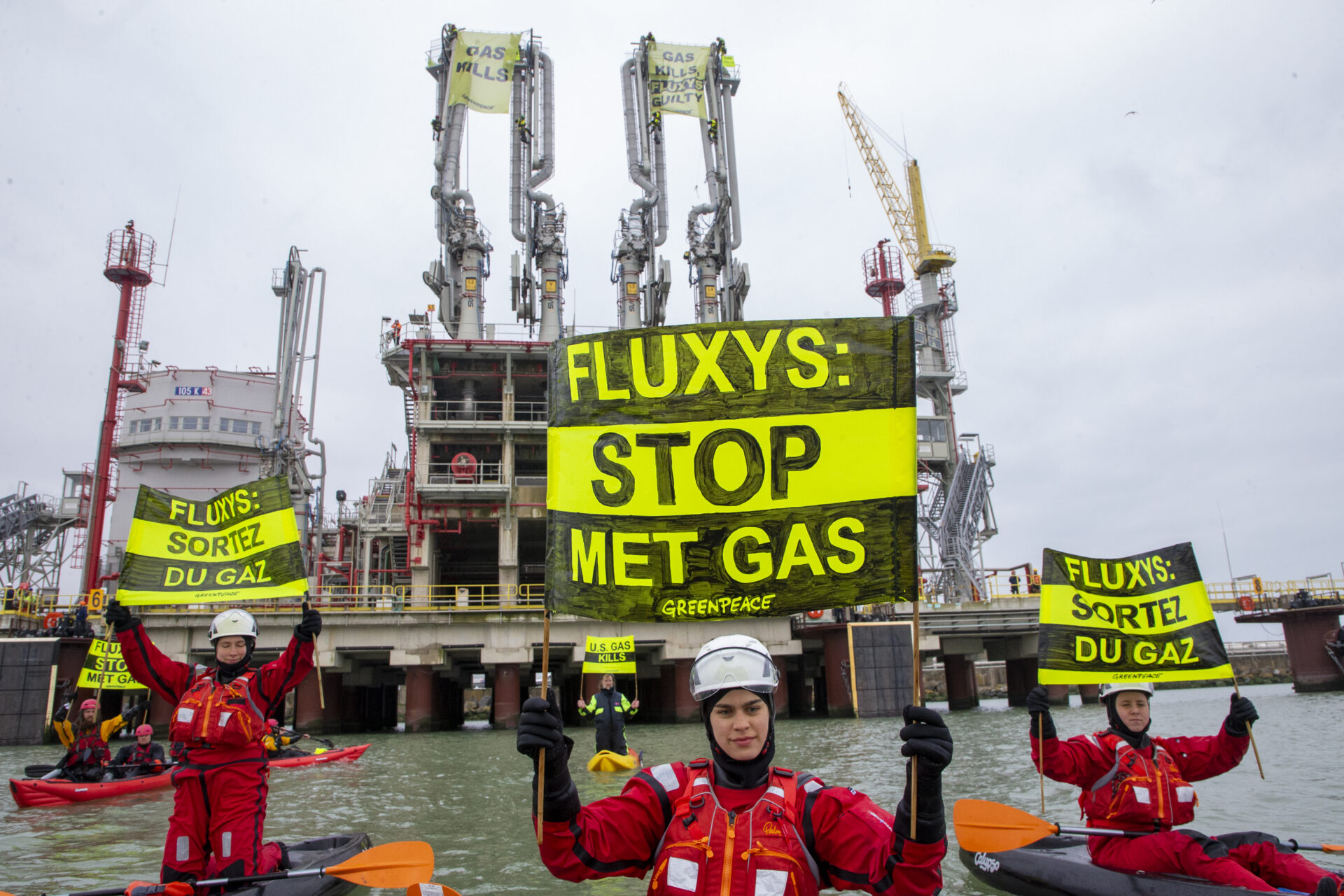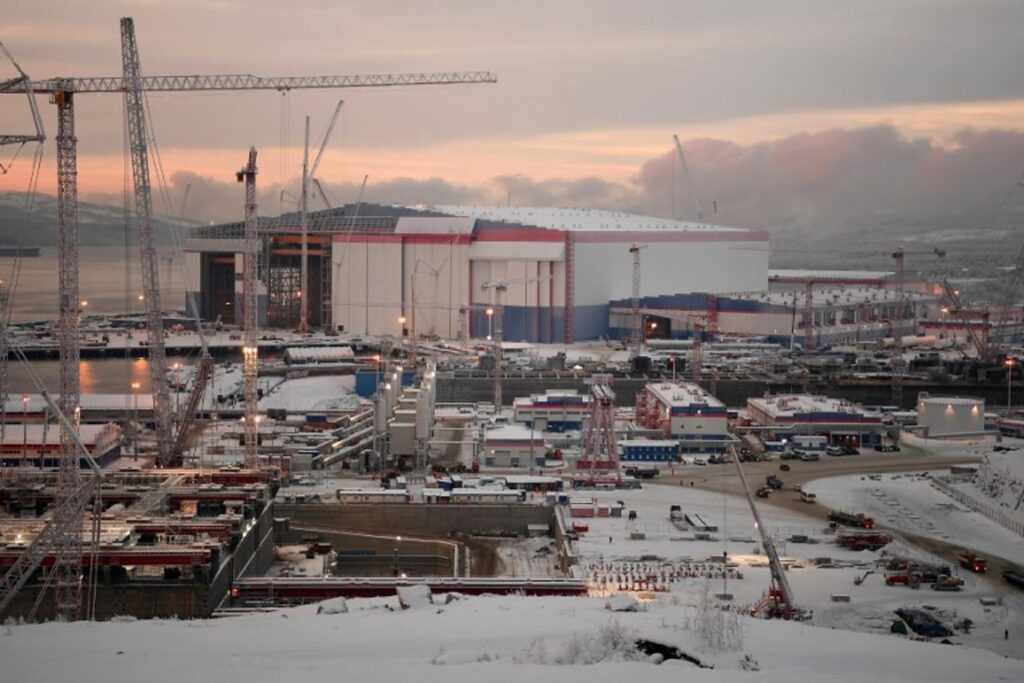Human rights violations are linked to imported gas operations in Belgium, says a new Greenpeace Belgium report which highlights the human cost of extraction and transportation in terms of health problems, damage to property, and threats to traditional ways of life.
"The European gas market suffers from a serious lack of transparency," stated Mathieu Soete, an energy transition campaigner at Greenpeace Belgium. This allows suppliers and gas managers, like Fluxys in Belgium, to conceal the origins of gas supply from consumers.
Human rights violations linked to gas extraction have been reported in the six main countries supplying Belgium's gas market: Norway, the United States, Russia, Qatar, the United Kingdom, and the Netherlands. The Greenpeace report analyses the severity and impact of these violations.

The protest action of Greenpeace environmental activists, at the LNG terminal of Fluxys. Credit: Belga/ Nicolas Maeterlinck
Greenpeace cited the precarious situation in the Norwegian and Russian Arctic, which represents 36% and 12% of gas imported into Belgium. The continual development of such gas operations directly threatens traditional ways of life for indigenous populations, such as fishing and hunting.
The United States accounts for 16% of gas imported into Belgium. Studies have highlighted that respiratory illnesses, cancer and heart diseases are increasingly prevalent within communities living close to shale gas wells and export facilities within the US. This comes as a result of air pollution, caused by the toxic substances produced during the fracking of shale gas.
The Netherlands, home to one of the world's largest natural gas fields, has also felt the severe impact of issues arising from extensive gas operations. Earthquakes directly linked to gas extractions have damaged thousands of homes and buildings.
Related News
- Greenpeace volunteers plant 3,000 trees in Flemish Brabant
- Extinction Rebellion occupy street under Monts des Arts in Brussels
In response, Greenpeace calls for the implementation of a European "duty of vigilance" directive, currently on the agenda of Belgium's EU Council Presidency. This would force companies to address human rights violations committed as a consequence of their operations.
"Like other fossil fuels, in line with the final text from the recent COP, fossil gas must be abandoned. We demand a fossil gas phase-out timetable for Belgium by 2035," Soete stressed.

